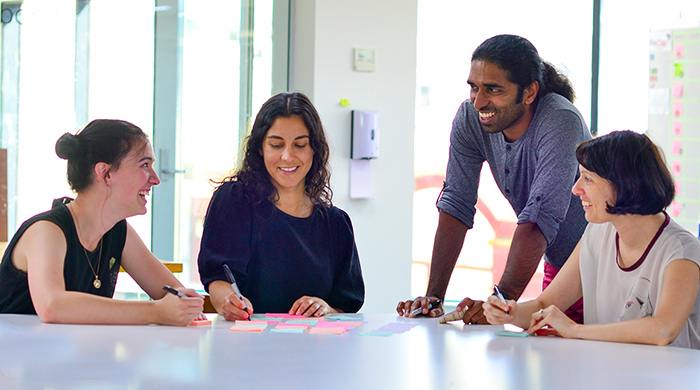By Nick Butler
Tags: Agile

This collection of retrospective ideas gives you guidance on when to use each retro and step-by-step plans for running them. The goal is to make it easy to run a range of engaging retrospectives that are relevant to your team.
The retrospective ideas are listed by common situations, dynamics and stages that Agile teams and projects go through. This lets you tailor the retro to what your team needs today.
While the retrospective is a key part of Agile, you don’t need to be working in an Agile way to get the benefit of retrospective meetings. They’re useful for any team looking to improve their processes and productivity. So here’s a quick summary for people who are new to Agile.
Retrospectives are one of the ways you follow the principles of Agile, most notably this one: “At regular intervals, the team reflects on how to become more effective, then tunes and adjusts its behavior accordingly.”
For those working in Scrum, the Scrum Guide describes the Sprint retrospective like this: “The Scrum Team inspects how the last Sprint went with regards to individuals, interactions, processes, tools, and their Definition of Done.”
To do this effectively, it helps to have a facilitation plan. You want to structure your meeting so that you can get the team into the groove, gather their input, turn input into insights, and then set goals that turn the insights into action.
Because the retrospective is a regular meeting, you also want to keep them engaging and relevant. With that in mind we’ve put together a range of retrospective ideas.
Note that this list is just a starting point. We’re kicking off with the retros we’ve designed here at Boost, and we’ll be adding more retrospective ideas in the months to come.
Here are the retrospectives:
This table lists and links to the how-to facilitation guides, along with a description of the retro and advice on when to use it.
| Retro how-to guide | Description | Use the retro when: |
Welcome aboard |
Get to know each other, get to know the work and get ideas for ways to support the new crew. | New team members are joining. |
Individual strengths |
Level up a team by reflecting on and reinforcing their individual strengths. | You want to energise everyone by reminding them how they contribute to the team’s success. |
Golden moments |
Remember the good times and good learnings so you can lock them in. | You’re coming to the end of a project, or a team member’s time on a project. |
The Development Continuum |
Encourage constant, focused professional growth across the team. | You want to tailor your skill-building to each team member’s stage of development. |
Google forms remote retro |
Learn the pros and cons of using Google Forms to run a remote retro and find out how to run one. | You’re working remotely and you need a simple way to run a retro. |
Treasure Island |
Let your team identify the treasure they’re looking for and the best way to find it. | You want to find what most motivates your team. |
Creating your own retrospectives makes it easier to respond to the specific needs of your team. That’s one reason the Agile team at Boost are creating our own set of retro plans.
If you’re looking to create your own retros, Esther Derby and Diana Larsen have literally written the book on the subject, so that’s a good place to start:
Agile Retrospectives: Making Good Teams Great